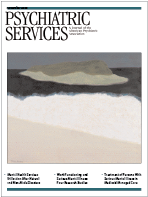Fidelity of an Outreach Treatment Program for Chronic Crack Abusers in the Netherlands to the ACT Model
Abstract
This study evaluated an effective outreach treatment program in the Netherlands for chronic, high-risk crack abusers on its adherence to the assertive community treatment model. Fidelity was tested on 25 criteria of the Dartmouth Assertive Community Treatment Scale. Adherence was high on several factors: a small caseload, staff capacity, a nurse and a substance abuse specialist on staff, explicit admission criteria, low intake rate, and intensity of service. Future programs that focus on treating crack addiction should implement these components. The outreach treatment program showed low adherence to the assertive community treatment model for including a psychiatrist and a vocational specialist, both of which are important factors that should be implemented in future programs. Other factors were observed to be important for treating this population: a strong focus on the client-therapist relationship, stagewise substance abuse treatment, and on-the-spot incentives to keep this population involved in treatment.



